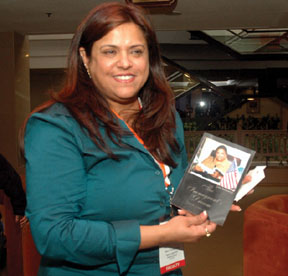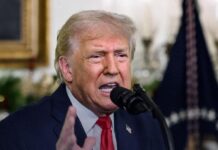
While the United States Presidential election related activities were on peak last month, even in the midst of my busy schedule in my law firm at the United States of America, I have been closely watching Trump’s statements on immigration.
Trump continues to make headlines with each of his statements being highlighted as a matter of ‘grave concern’ especially for developing countries such as India. This is quite natural given the fact that a very large population from our country migrates to the United States for business, family and employment related purposes ever year, thanks to the opportunities the U.S has always been offering.
Some of the most important questions our people need to carefully consider today when they think of ‘immigrating’ to the U.S are: What is the existing immigration law (under the Obama administration)? What is Trump’s stand on immigration? What does this hold for India? What can India do for its citizens to ensure that their transition to the U.S is hassle free?
For enabling the President to ensure this, the federal law gives him broad authority to enforce immigration law as well as regulatory leeway in the form of policy recommendations and executive actions. The biggest fear India has is related to the curtailment of the H-1B program which allows 65,000 workers a year mostly used by Indian software engineers to work in the US.
While Trump would need an act of Congress to substantially raise the qualification standard for an H-1B visa or to lower the annual cap for the same, he could use his executive power to tighten up rules or pass new laws such as the recent bill to raise the minimum wages and remove the masters degree cap to make the process more painful for the visa applicants.
What we need to understand here is that, over the years, there has been considerable misuse of loopholes in this (H-1B visa) program, and hence the President is at total liberty to plug those loopholes. However, if the President enforces law to the extent that shuts down immigration completely, the American people and the U.S economy is going to suffer; hence, this is unlikely to happen.
It is evident that Trump is certainly going to step up investigation of programs such as H-1B of which India is the highest beneficiary, and is therefore very likely to ban more employers who have violated H-1B rules as part of the process. It is going to be a hard political argument to make that Indian immigrants are being discriminated on the H-1B policy.
In this context, what is of utmost importance for Indian companies in the U.S is to strictly follow the immigration rules. A point worth noting here is that the Trump administration has not yet commented on the EB-5 program. Hence the EB-5 stakeholders, though they feel that there may be a tougher stand in some aspects of the immigration program, are very confident of the continuance of this (EB-5) particular program.
Their confidence stems from their belief that the President will think twice about turning his back on a program that has been proven to create and support jobs around the country. There is a new bill proposed by Trump Sarkar to raise the minimum investment from April 2017 hence the rush in new applications.
As expected, there is a clash within Republicans (the business and populist wings of the party) over the nation’s system of legal immigration. This battle could prove to be as divisive as the fight over illegal immigrants.
Anu Peshawaria, Esq (President of the Anu Attorney Law Group, PLCC based in Seattle, Washington) is an award winning US Immigration attorney, who is a former adviser to Embassy of India in Washington DC and in San Francisco, Chicago, New York and Houston for immigration. She is also Indian Supreme Court Lawyer as well as Supreme Court of Washington, USA.
Anu Peshawaria






